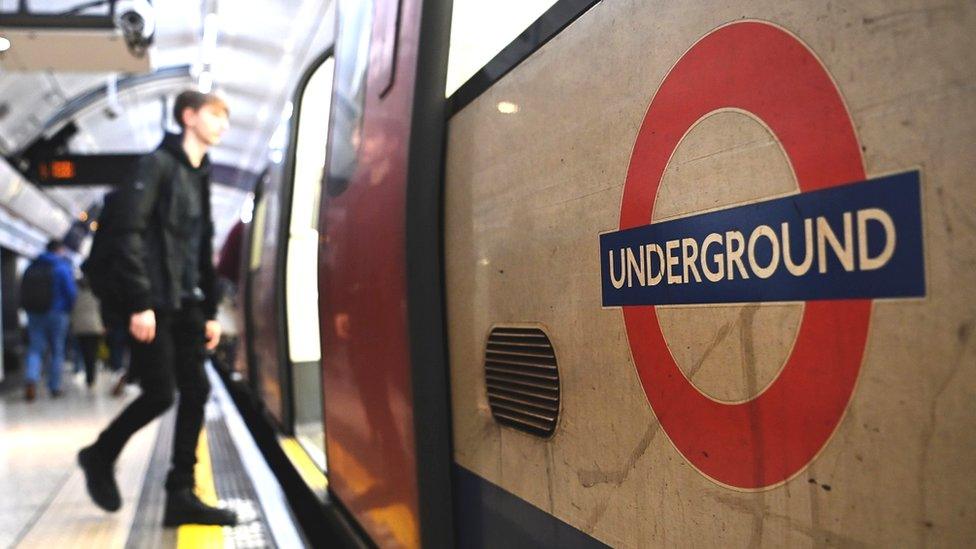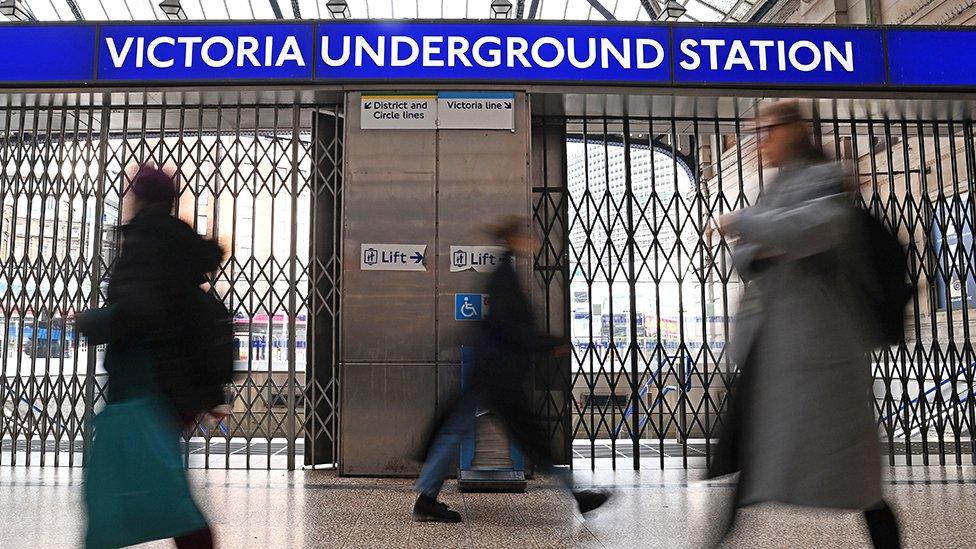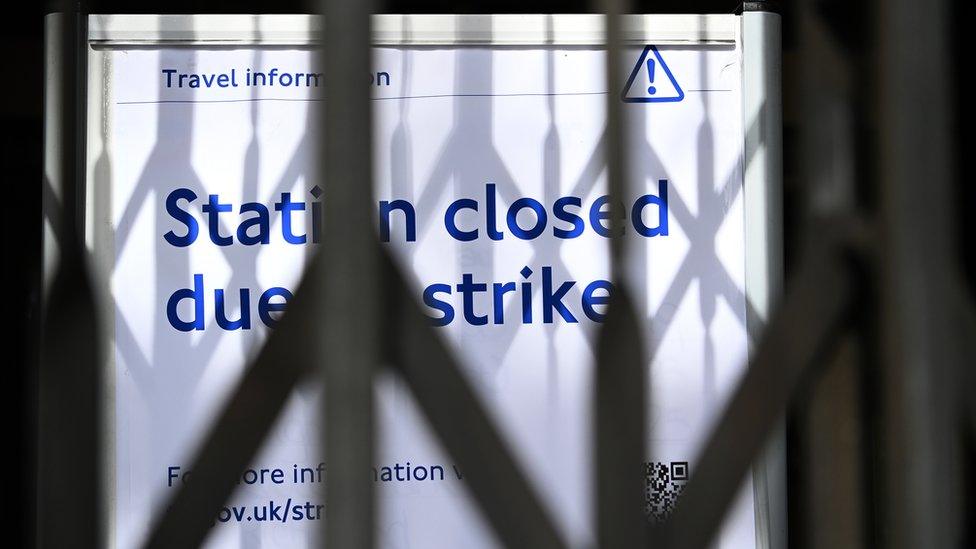Tube strike: Unions call off action following talks
- Published

Hundreds of Tube staff were set to walk out from 23 to 28 July
Transport unions have called off planned strikes on the Tube next week following last-minute talks.
Members of the Rail, Maritime and Transport (RMT) were set to walk out from 23 to 28 July, and Unite and Aslef members were due to strike on 26 and 28 July.
BBC London transport correspondent Tom Edwards said it followed a "major step forward" in talks.
He said any changes to pensions would not happen until 2026.
Changes to working conditions would be subject to further negotiations.
It is the latest development in a long-running dispute between unions and Transport for London (TfL) over job cuts, changes to pensions, and working conditions.
'Not the end'
In a statement, the RMT said "progress" was made in the talks after "significant concessions were made by TfL where their original plans for jobs cuts and pension changes will not be carried out".
The union continued: "There are now longer guarantees on protection of earnings, no pension changes for at least three years, and so-called productivity proposals, which would have damaged the terms and conditions of RMT members, have been halted."
However, the RMT's general secretary Mick Lynch said: "This is not the end of the dispute nor is it a victory for the union as yet.
"RMT's strike mandate remains live until October and we are prepared to use it if necessary," he added."We will continue to negotiate in good faith as we always have done with TfL, and it was only the steadfast commitment of our members in being prepared to take sustained strike action that has forced the employer to make significant concessions."

The Tube network was last disrupted by strikes in March
BBC London's transport correspondent Tom Edwards said: "The pensions issue is a really thorny one and this has been stuck in the weeds for a year - TfL was reviewing its pension as a condition of the government bailout during the pandemic.
"What broke the deadlock was confirmation from government that any changes would involve legislation and it wouldn't be until 2026 at the earliest.
"That was enough for the unions as it puts the plans beyond a general election, and if there's a new government, who knows if changes to TfL pensions will be a priority for legislation?"
He added that given "there are still warnings from the unions that this isn't the end of the matter", the announcement "may just be a pause in the dispute".
'Good news for London'
TfL's chief operating officer Glynn Barton said: "This is good news for London and we will continue to work closely with our trade unions to discuss the issues and seek a resolution."
In a statement, TfL said it "has provided assurance that there are no current proposals to change pension arrangements" and any future proposals "would require appropriate consultation and extensive further work".
It added "no employee will lose their job or be asked to work additional hours" as part of the range of proposals being considered.
Mayor of London Sadiq Khan, said: "It is really welcome news for Londoners that the trade unions have suspended their planned strikes next week and that commuters won't face disruption."Negotiation is always the best way forward and this shows what we can achieve by working with trade unions."I've been in close contact with the TfL commissioner throughout this week, and I'll keep working with our TfL unions and staff to deliver the best transport system in the world for Londoners."

Follow BBC London on Facebook, external, Twitter , externaland Instagram, external. Send your story ideas to hellobbclondon@bbc.co.uk
- Published18 July 2023

- Published13 July 2023
